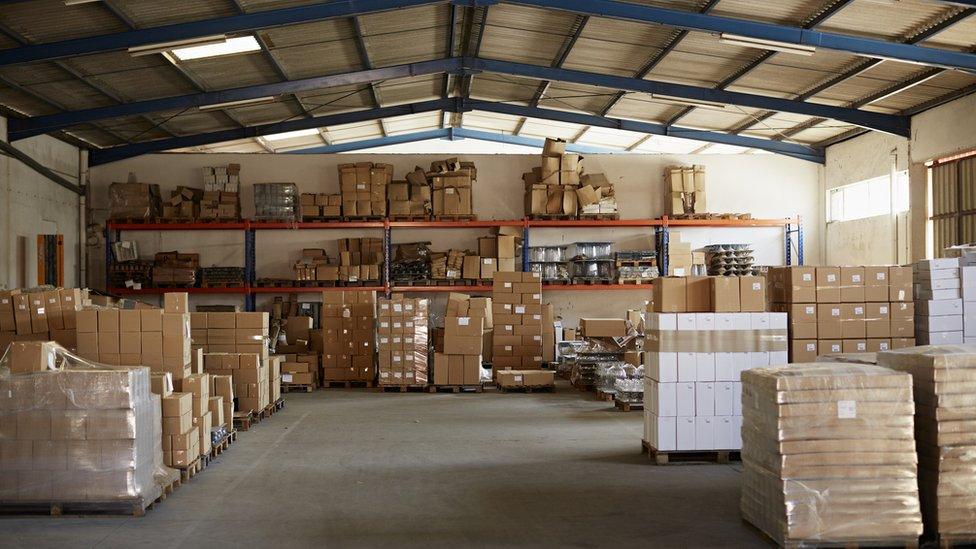Covid-19: NI economic recovery 'may be weaker than originally thought'
- Published

In November, the Office for National Statistics published growth estimates based on economic modelling
Northern Ireland's economic recovery from the pandemic may have been weaker than originally thought, new analysis suggests.
In November, the Office for National Statistics (ONS) published growth estimates, based on economic modelling.
It suggested NI output in the third quarter of 2021 was only 0.3 percentage points below that of the final quarter of 2019, before the pandemic.
The ONS has now revised those estimates.
The revision suggests that in the final quarter of 2021 output was still 1.1 percentage points below the level at the end of 2019.
That was still better than most other regions: only output in Wales had reached its pre-pandemic level by the end of 2021.
Ulster Bank economist Richard Ramsey has analysed the latest data and said it is at odds with a different measurement produced by the NI Statistics and Research Agency (Nisra).
The Nisra output measure suggests that Northern Ireland's economy had returned to pre-pandemic output levels in the second quarter of 2021, with further growth in the third quarter.
Mr Ramsey said: "A key difference in the Nisra index is it includes public sector employment as an indicator of output growth.
"So the continued rise in public sector staffing levels flatter the picture for economic growth."

Ulster Bank economist Richard Ramsey has analysed the latest data from the Office for National Statistics
He added that the revised ONS figures also suggest that Northern Ireland had the weakest year-on-year economic growth in the final quarter of 2021.
It was 3.4% compared to 6% in Wales and 5.3% in Scotland.
He said the ONS also suggests that only Wales has had a weaker rebound in growth "since the pandemic induced trough of Q2 2020".
The figures are likely to add to the debate about the impact of Brexit and the NI Protocol.
However, the ONS said these are experimental statistics that need to be treated with some caution.
It warned that because its modelling relies on estimated historical relationships, regional economic "shocks" will not be detected.
That could mean that, for example, the model might not pick up the economic changes flowing from Brexit and the Protocol.
Mr Ramsey said: "Clearly there is conflicting statistical evidence which in the fullness of time will be ironed out."
Related topics
- Published24 February 2022

- Published10 January 2022

- Published29 November 2021
